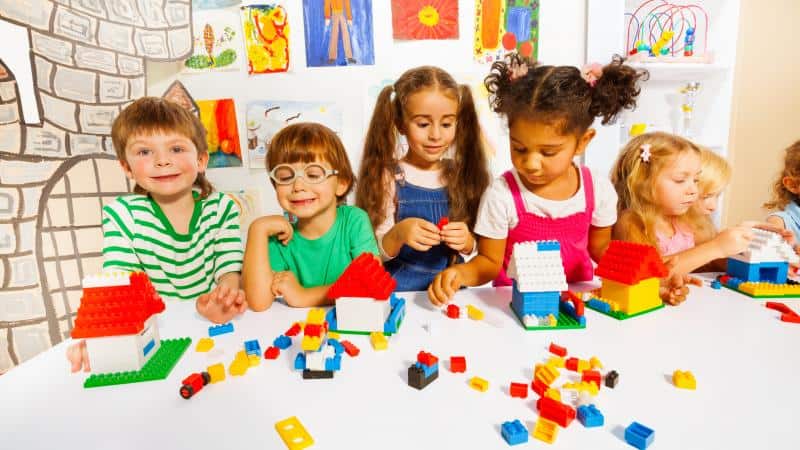Noted child psychologist Jean Piaget once wrote that the work of childhood is play. If you thought going to school was your little one’s job, you’re not incorrect — but their teacher should implement play-based learning.
What are the benefits of play-based learning? The following 10 perks explain why this teaching method represents a best practice.
1. It Doesn’t Spur Resistance
Think about the average day in a child’s life. Somebody else tells them when to wake up, report to school, and what to eat and wear. If you were micro-managed to such a degree, you’d probably feel a bit resistant to new demands at times, too.
Play is so innate to childhood that even psychologists struggle to define precisely what it represents. However, they can measure the effects on improved academic performance and behavior, as well as healthy decision-making.
Consider a baby’s introduction to the wonders of gravity when they drop a full cup of grape juice off their high chair onto your white carpet. It’s all in the interest of science — and learning that the behavior makes mama sigh in frustration is part of the learning process.
2. It Builds Academic Confidence
Think about the last time a new computer program or app left you shaking your head. You probably felt intimidated when your teenager figured out in seconds what you couldn’t in hours.
When younger children learn skills like using scissors or writing their names as part of play, they build the confidence they need for academic success. A class of 40 can be an intimidating place to ask questions. Playing helps children reach a workable solution solo and how to request a helping hand when necessary.
3. It Improves Problem-Solving Skills
People love to laugh at Pinterest fails because it reminds them that everyone’s human and makes mistakes as they learn. Too often, though, when children make an error on their schoolwork, their teacher shows them how to correct it instead of letting them puzzle it out independently.
Play-based learning fosters the attitude of “if at first you don’t succeed, try, try again” differently. Without the pressure of arriving at the “right” answer, children are free to discover a personalized path to a satisfying outcome. The world would be a vastly different place if people like Steve Jobs followed only one set of directions to build a computer — there’s no room for innovation without problem-solving skills.
4. It Encourages Cooperation
Sadly, Americans seem to embrace independence so fervently that they forget we’re all in this together. Primitive humans survived because Moog shared his fire while Sheena contributed part of her kill. Allowing children time to engage in play-based learning encourages them to turn to their peers for help when they can’t manage a task solo — “you steady the tower while I place the next block.”
5. It Aids in Social Development
“If you hoard all the toy trucks for yourself, no one will want to play with you.” This lesson seems obvious to adults, but not so to 4-year-olds. Play-based learning allows children to explore their emotions while developing the self-discipline to express them without alienating others.
6. It Keeps Kids Physically Active
Even though your child’s brain makes up only 2% of their weight, it gobbles up 15-20% of the body’s blood supply. The more oxygen-rich stuff kids have to flow to their neurons, the brighter their focus. Play-based learning encourages movement, which decreases behavioral problems and keeps them interested in education.
7. It Inspires Healthy Questioning
Far too many folks, including adults, accept what they read and hear without questioning it. The result is a society ripe with division and hostility instead of open and cooperative scientific inquiry. Grownups sometimes unwittingly quash a child’s queries with a harsh, “Because I said so,” sending the message that obedience matters more than finding the most workable solution for everyone.
Play-based learning encourages children to ask, “Why isn’t this working” and “Is there a better way?” If kids represent the future, they need to tackle these challenging questions.
8. It Fosters Creativity and Imagination
You see an empty toilet paper roll with a pencil stub stuck through one end. Your child envisions a unicorn. Play-based learning encourages your little one to make up new rules to games and create nascent works of art.
9. It Encourages Language Development
Play-based learning encourages language development through cooperation and innovation. If your 6-year-old wants to play Uno, they have to communicate the rules to new competitors. It’s fascinating to observe how they manage to do so even if a language barrier or physical handicap like deafness hinders communication.
10. It Promotes a Positive Attitude Toward School
Children dislike school for many reasons, from bullying to struggling to master concepts their classmates seem to get in a snap. For many, the answer to why they won’t get out of bed is the attitude that school is more like a prison than a place to grow and develop.
Play-based learning is like waking up in the morning to your dream career. It fills little hearts with anticipation for the day ahead and makes getting them out of their “Spongebob” PJs and onto the bus on time like a suburban made-for-TV-movie dream. Plus, when they enjoy their learning, they tend to excel academically.
Play-Based Learning Offers a Ton of Benefits
Play-based learning offers your child a ton of benefits. When you schedule your parent-teacher conference, ask how they include this methodology in their lesson plans.
